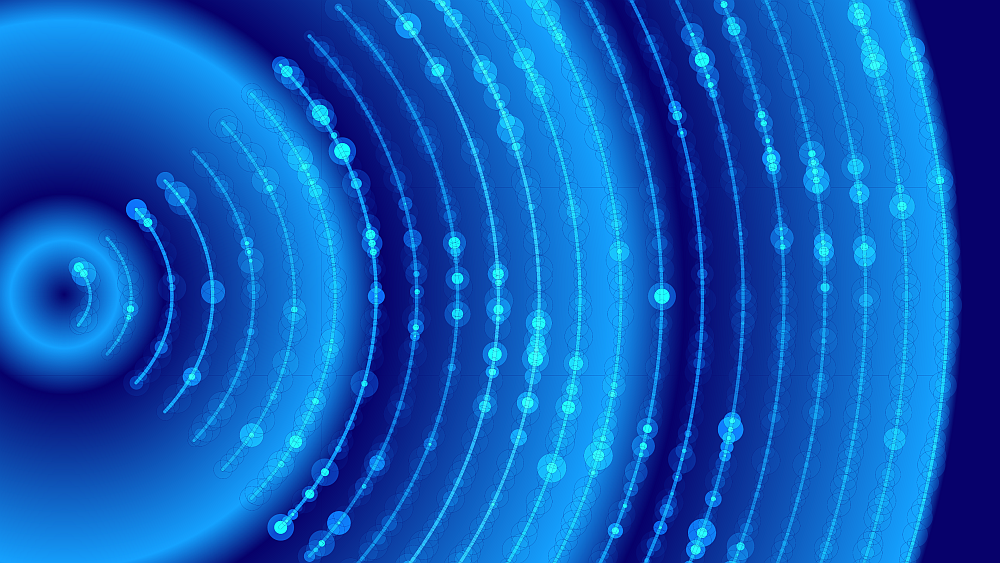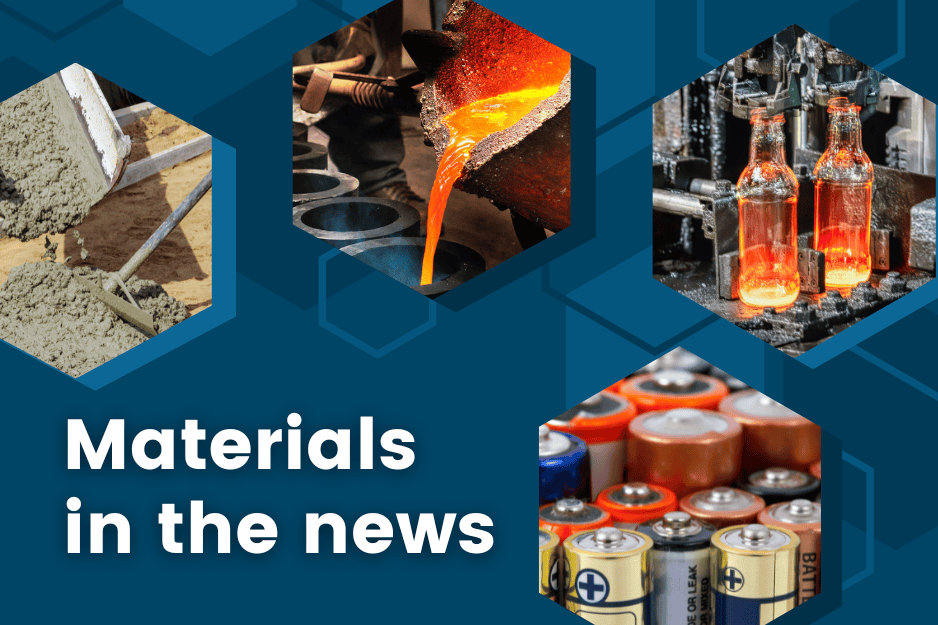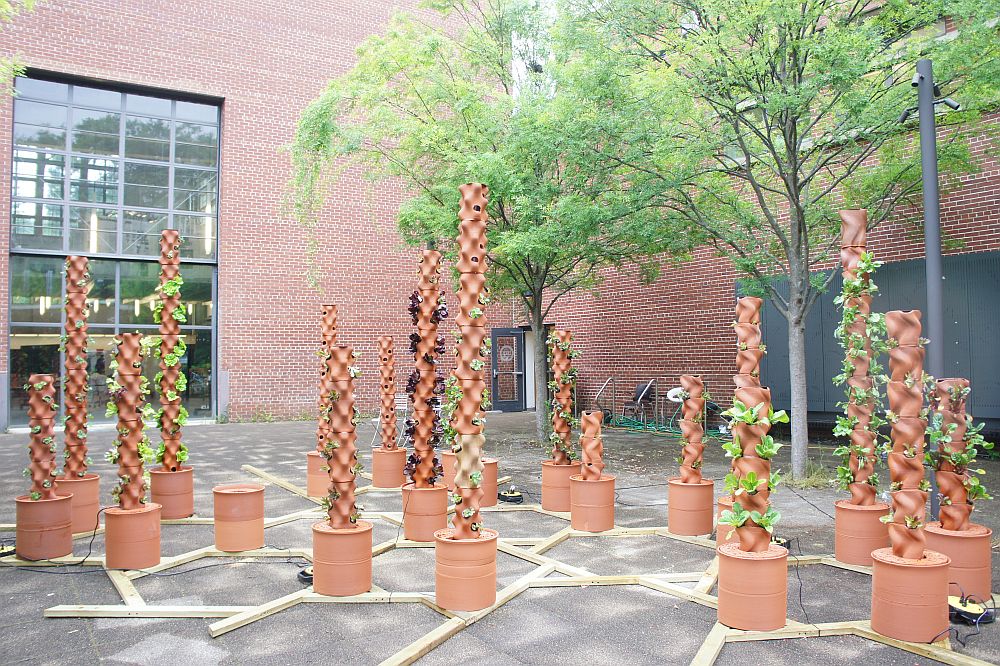
[Image above] Credit: Pixabay
When vaccines started becoming available at the end of 2020, I know we all hoped that 2021 would be the year we turned the corner on COVID-19. A year later, with new variants leading to closures once again, we’re heading into our third year of pandemic life.
Despite these setbacks, there are so many things that did go right in 2021, and I for one am looking forward to 2022 with hope. With that in mind, the CTTs I chose for my five favorites of 2021 are ones that celebrate the advancements we made toward a more sustainable and equitable world.
Video: Decommissioned wind turbine blades get a second wind through reuse and recycling

Credit: David Clarke, Flickr (CC BY-NC-ND 2.0)
“The vast majority of wind turbine blades that reach end-of-use are either being stored in various places or taken to landfills because there are few options for recycling. Numerous companies and universities are working to change that.”
Improving sustainability of wind turbine blades through fiber reclamation and new resin

Credit: Johanna Montoya, Unsplash
“Wind turbine blades are notoriously difficult to recycle due to the mixed nature of the blade material. Two companies are exploring different ways to improve lifecycle sustainability through glass fiber reclamation and developing a new resin for the blade.”
I know this first entry technically involves two posts, but because they are on the same topic, I choose to count them as one article with two parts.
As wind energy becomes an ever-larger part of the energy portfolio, decommissioning wind turbines sustainably is a must if this power source is to benefit the environment throughout its entire lifecycle.
These two articles demonstrate the work being done by numerous companies and organizations to dispose of turbine waste sustainably, and I look forward to continued expansion of these projects in 2022.
Video: NASA technology extracts oxygen from Martian atmosphere

Credit: NASA/JPL-Caltech
“To achieve future manned missions to Mars, we must be able to extract oxygen from the Martian atmosphere. An experimental instrument aboard the Perseverance rover called MOXIE succeeded in extracting oxygen for the first time during a test on April 20.”
Though astronauts won’t make it back to the moon by 2024, scientists continue to push the boundaries of space travel in other ways—as the recent Mars rover mission shows.
In February, NASA successfully landed the Perseverance rover on Mars and in the following months completed several successful demonstrations. One demonstration in particular—extraction of oxygen from the Martian atmosphere—made headlines because of its importance to achieving a crewed mission to Mars someday. If we ever do go, though, just make sure to bring potatoes with you!
Video: European Commission proposes single standard charger for many electronic devices

Credit: ajay_suresh, Flickr (CC BY 2.0)
“Ever since some major phone producers pledged to harmonize chargers for data-enabled mobile phones in 2009, most chargers are now based on USB ports and connectors. Now, the European Commission is proposing legislation that would require USB Type C be the standard port for all smartphones and many other electronic devices.”
Electronic waste (e-waste) is a rising concern for manufacturers and consumers around the world, and one reason is because our current recycling systems cannot properly handle it. Until we improve our approach to end-of-use disposal, we can work on minimizing the waste generated, and the legislation proposed by the European Commission does just that.
The proposed law would require USB Type C (USB-C) be the standard port for most small electronic devices, thus helping minimize waste generated from consumers discarding incompatible chargers. The European Union has moved toward such standardization for years, and this legislation puts it on the fast-track to realization. Now if the United States would pass similar legislation!
If you live in America and brush your teeth, get excited—bioactive glass toothpaste is on the way

Credit: Diana Polekhina, Unsplash
“After a long and interesting journey, bioactive glass toothpaste is set to soon be available in the United States. U.K.-based company BioMin received FDA premarket clearance for its Restore Plus toothpaste under the Dr.Collins brand.”
For people living in the United Kingdom, bioactive glass-containing toothpaste has been readily available for years. But for people living in the United States, this year marks the first time they can easily purchase this toothpaste.
Bioactive glass-containing toothpastes effectively treat tooth sensitivity, yet regulatory approval has hampered the availability of this toothpaste in the U.S. market. But in late 2020, U.K.-based company BioMin received FDA premarket clearance for its bioactive glass-containing toothpaste. This certification opens the door for the toothpaste to finally be offered on the U.S. market—and potentially make it easier for similar types of products to come to market. I know my friends with sensitive teeth will appreciate this achievement.
Video: N*Gen—teaching science through an African lens

Credit: NgenTVAfrica, YouTube
“Increasing diverse representation of scientists in the media is one way to encourage students from underrepresented groups to pursue careers in science. A new children science show called N*Gen, produced in Uganda, helps achieve that goal by teaching science through an African perspective.”
I’m ending this year’s roundup with a post that demonstrates one of the top goals in ACerS’ new strategic plan—expanding our global culture of inclusion and actively working to develop membership within underrepresented groups.
Fostering a diverse and inclusive scientific environment involves more than just inviting people to participate in established research groups. Providing people a platform to research questions that benefit their communities is also essential, and the Ugandan television series N*Gen demonstrates just how important this concept is.
N*Gen looks at science through an African lens by focusing on African perspectives, locations, and scientific discoveries. As Jeff Schon, CEO and co-founder of Akili Kids!, a children’s learning channel based in Kenya, explains in an NPR article, “[The U.S. program SciGirls is] a lovely program, but it’s certainly not shot here. It is in some cases dealing with subjects that are not going to resonate here [like designing shoes to walk on ice].”
N*Gen originally aired only in several African countries, but in February 2021, the series debuted in North America and the Caribbean on The Africa Channel. Seeing such diverse and inclusive science programming become available to a larger audience gives me great hope for the next generation of scientists.
Author
Lisa McDonald


